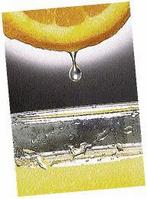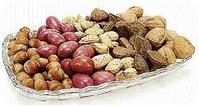
Cardiovascular disease claims more women's lives than the next five causes of death combined - about 500,000 women's lives a year.
You do not have to be among that number. Researchers note that there are some nutrients and easily accessed foods and not so difficult habits which can significantly improve the health of both women and men's heart.

Orange and grapefruit juice
A one-ounce glass of juice that's half orange and half white grapefruit. The sour stuff is loaded with the flavonoid naringin, which Korean researchers found can lower LDL levels by as much as 17 per cent. As for the orange juice, it can boost HDL (by as much as 21 per cent, if you drink three glasses daily).
Walnuts
Mix crushed walnuts into yogurt or drop them on cereal; a new study in angiology says that eating walnuts can raise HDL by nine per cent. Finally, swap your morning coffee for tea. USDA researchers found that drinking tea can cut LDL by 11 per cent.

Talk about your problems
New Canadian study shows that when work-stressed subjects received support from their partners, their systolic pressure dropped an average of 2.5 mmHg.
Aspirin
Take two aspirin a day if you are hypertensive. Spanish researchers recently found that hypertensive people who took 162 mg aspirin before bed decreased their systolic pressure by 6.8 mmHg and their diastolic by 4.6 mmHg. (Check with your doctor first).
Prayer
Before you sleep: Pray. New research shows that men who pray frequently have 3.5 per cent lower diastolic BP than once-in-a-while worshippers.
Vary exercise
Train for a half hour at 60 to 80 per cent of your maximum heart rate three times a week - but on one day, pick a random point and run (or bike) to it as fast as you can.
Linoleic Acid
Supplement with conjugated linoleic acid (CLA). Canadian researchers noted that people who popped four grams of CLA daily had a 27 per cent jump in insulin sensitivity after just eight weeks.
Chocolate
For an extra boost, replace 600 calories in your diet with an extra dark chocolate bar; according to a new Italian study, this can quadruple insulin sensitivity in two weeks.
Vitamin C and magnesium
Swallow the tag-team treatment of vitamin C and magnesium. University of California at Berkeley researchers recently showed that taking a daily 500 mg vitamin C supplement can decrease CRP (C-Reactive protein) levels by 24 per cent. And according to a new study in the Journal of the American College of Nutrition, people low on magnesium are up to two times more likely to have elevated CRP levels than those meeting their quota.

Information Source: MSN.com

